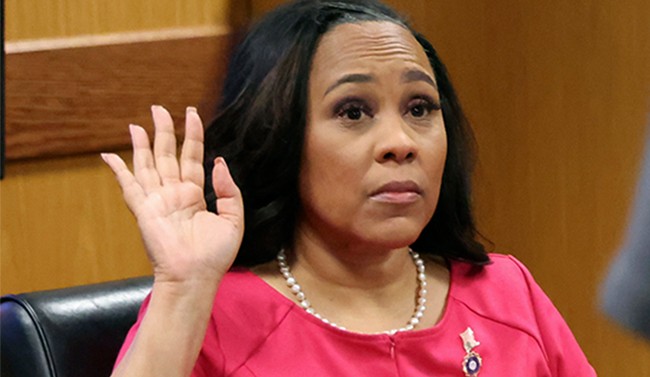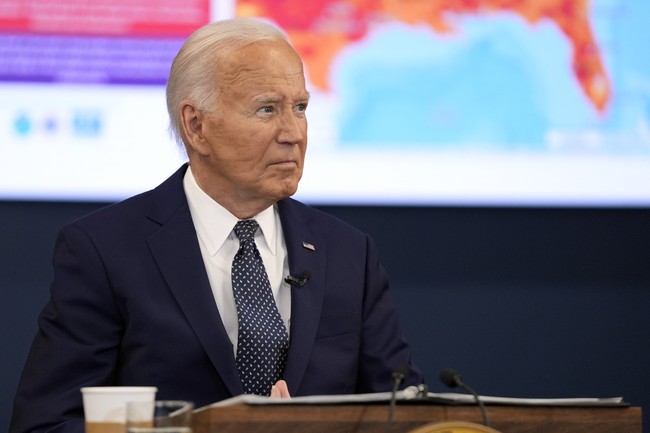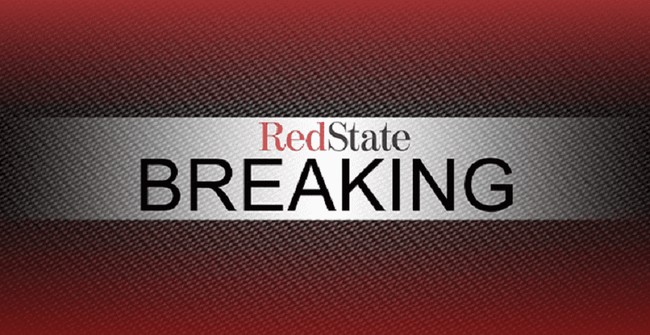Georgia Prosecution Twist: What's Next for Trump?
The recent removal of Fani Willis as prosecutor in the Trump case may lead to significant implications. Explore why the case could be paused, altered or potentially dismissed.
Published December 20, 2024 - 00:12am

Image recovered from redstate.com
The legal saga unfolding in Georgia regarding former President Donald Trump has taken a dramatic turn following a significant development from the state's Court of Appeals. Fani Willis, the Fulton County District Attorney, was disqualified from her role in prosecuting Trump. This decision stems from allegations of a conflict of interest due to her personal relationship with Nathan Wade, a prosecutor she hired who was involved in the case. Critics argue that this relationship undermined the integrity of her involvement, leading to heightened media scrutiny and public debates on the propriety of her actions.
Willis, known for her assertive prosecutorial style, faced immense pressure over the past months as she navigated accusations of having compromised the judicial process. The concerns centered around whether taxpayer dollars were misappropriated during this professional entanglement with Wade. Consequently, the Trump defense team actively sought her removal, citing potential bias and prosecutorial misconduct. Further exacerbating the crisis, Willis's credibility was questioned following an incident involving her daughter, prompting legal teams to allege potential misinformation presented under oath.
The decision of her disqualification comes at a pivotal time in the legal proceedings connected to Trump's alleged interference in Georgia's 2020 election results. The case, which involves accusations of Trump's attempts to overturn President Joe Biden's victory, has been sidelined in the courts since mid-2023, reflecting a broader pattern of legal challenges the former President faces. The appeals court's latest ruling not only impacts Willis but could alter the trajectory of the prosecution altogether. This has led to speculation about the continued viability of the case, whether it will be dismissed or indefinitely postponed.
This development, not unprecedented in highly politicized cases, underscores the intricate balance between legal ethics and political ramifications. Trump, who is simultaneously grappling with multiple legal battles across the nation, sees this as a symbolic victory. His legal team cites the removal of Willis as validation of their longstanding claims against what they perceive as biased prosecutorial practices. Yet, despite her removal, the charges against Trump remain standing, leaving the defense to consider further strategies, including potential appeals to higher courts.
Political commentators from various media outlets, including those with center-right and right-leaning ideologies, have weighed in. They suggest that the fallout from Willis's disqualification could lead to the broader unraveling of the case against Trump in Georgia. Additionally, they question the implications for public trust in the judicial system, especially in cases interwoven with political history such as the 2020 election.
While Willis contemplates her options, including challenging her disqualification at Georgia's Supreme Court, the spotlight remains on the judicial processes and their interplay with political narratives. Legal analysts have noted that the decision could set a precedent for how perceived conflicts of interest are managed in high-stakes legal encounters involving political figures. As both sides of the political spectrum observe closely, the disqualification of Willis has inevitably added complex layers to an already multifaceted legal tapestry surrounding Donald Trump.
As the situation evolves, stakeholders await further judicial decisions that could either accelerate or stymie the proceedings in the Trump case. The ensuing legal discourse promises to keep the nation engaged, as it probes the balance between judicial propriety and political influence.






